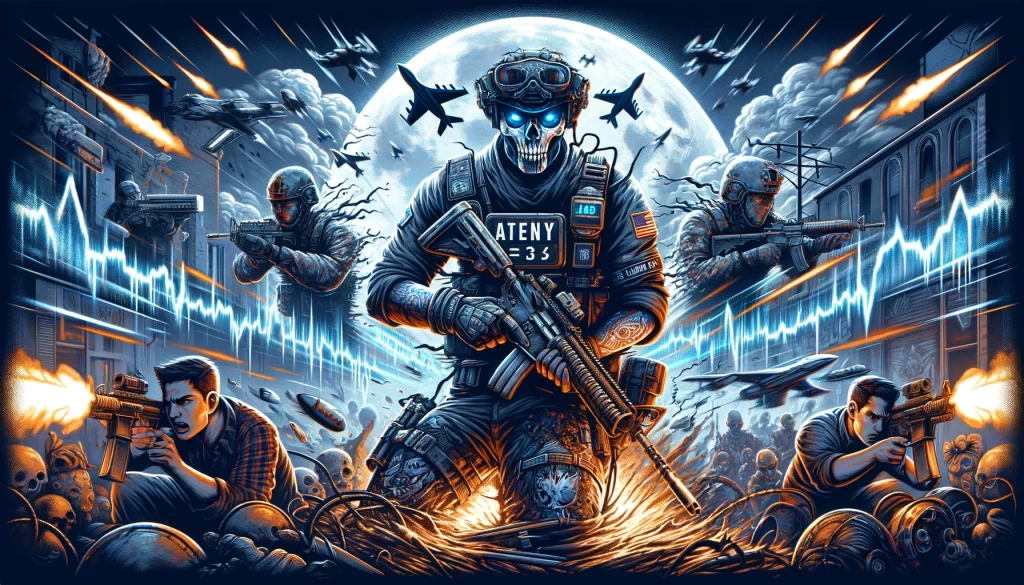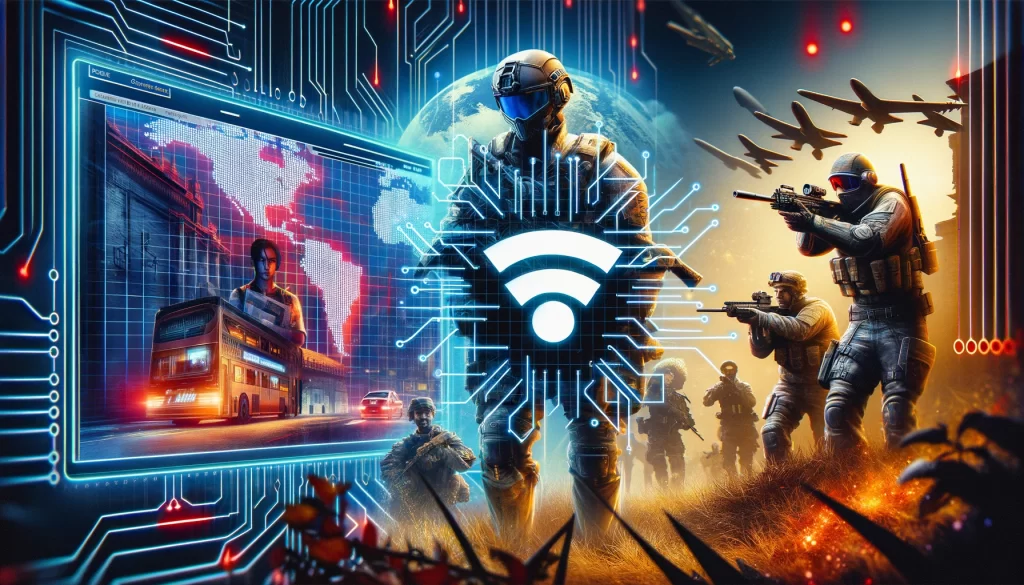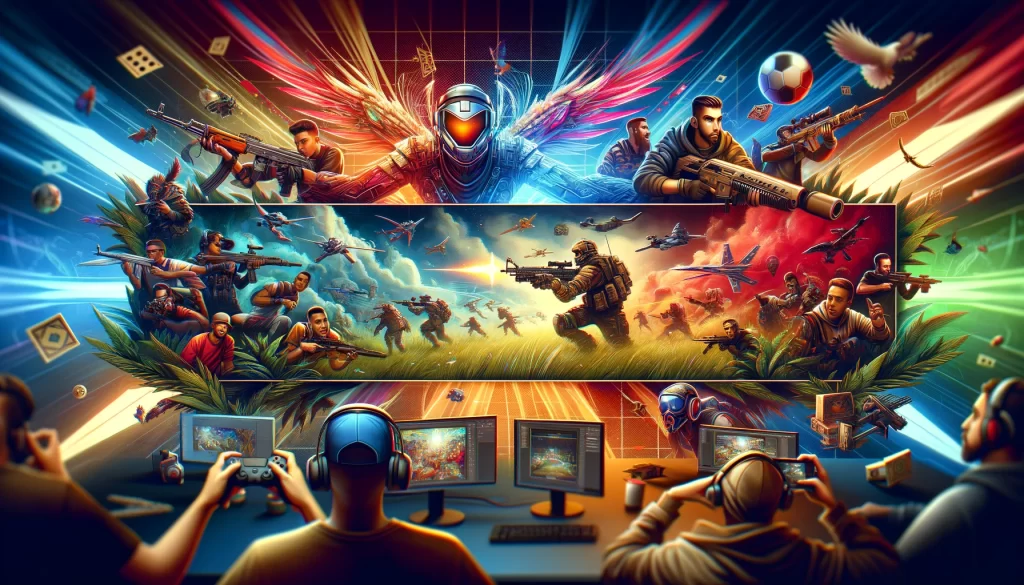Gaming VPN vs Regular VPN: What Warzone Players Need to Know
Not all VPNs are created equal. Learn why using NordVPN or ExpressVPN for Warzone actually hurts your performance, and what gaming-optimized solutions do differently.

Table of Contents
You've probably heard that using a VPN can help you get easier lobbies in Warzone. So you sign up for NordVPN or ExpressVPN, connect to a server in Egypt or Singapore, launch Warzone, and... the game is nearly unplayable. Your ping is 200ms+, enemies teleport around, and you can't hit anything. What went wrong?
The truth is that regular VPNs weren't designed for gaming. They were built for privacy, security, and bypassing content restrictions—not for competitive online gaming where every millisecond matters. This article explains the critical differences and why it matters for your Warzone experience.
The Costly Mistake Most Gamers Make

Every day, thousands of Warzone players make the same expensive mistake: they subscribe to a regular VPN thinking it will help their gaming, only to discover it makes everything worse.
The Common Scenario
- 1. Player hears about VPNs helping with easier lobbies
- 2. Signs up for NordVPN, ExpressVPN, or Surfshark ($10-15/month)
- 3. Connects to a distant server (Egypt, Singapore, etc.)
- 4. Launches Warzone expecting easier matches
- 5. Game is laggy and nearly unplayable due to 150-300ms ping
- 6. Even if lobbies are easier, can't take advantage due to lag
- 7. Cancels subscription frustrated, having wasted time and money
This happens because regular VPNs route ALL your internet traffic through distant servers, creating massive latency. Let's break down exactly why this is a problem.
How Regular VPNs Work (And Why That's Bad for Gaming)
Traditional VPN services like NordVPN, ExpressVPN, and Surfshark were designed primarily for privacy and security. Here's what happens when you connect:
The Regular VPN Process
Full Traffic Encryption
Every single packet of data from your device gets encrypted and sent to the VPN server first, no matter what application is using it.
Server Processing
The VPN server decrypts your data, processes it, and forwards it to its actual destination (like Activision's servers).
Response Journey
The response comes back to the VPN server, gets encrypted again, and then travels back to you.
Final Decryption
Your device receives and decrypts the data before displaying it in-game.
Why This Creates Gaming Problems
- • Massive Latency Increase: Every packet takes 2-4x longer to arrive due to encryption overhead and extra distance traveled
- • Server Load: VPN servers are shared with thousands of users, creating variable performance
- • Packet Loss: More hops = more chances for packets to get lost in transit
- • Bandwidth Throttling: Encryption/decryption processes can bottleneck your connection speed
- • Inconsistent Routing: Your traffic might take different paths each time, causing lag spikes
Real-World Latency Example
Without VPN (Direct Connection)
- • Your location: USA East Coast
- • Game server: USA East
- • Distance: ~100 miles
- • Ping: 15-25ms
With Regular VPN to Egypt
- • Your location: USA East Coast
- • VPN server: Egypt (~5,600 miles)
- • Game server: USA East (~5,600 miles back)
- • Ping: 180-300ms
What Makes Gaming VPNs Different

True gaming VPNs (also called gaming DNS services or selective routing VPNs) work completely differently. They were built from the ground up for one purpose: optimize online gaming performance while manipulating matchmaking.
The Gaming VPN Approach
Selective Traffic Routing
Only routes matchmaking data through modified paths. Your actual game traffic (player positions, shots fired, etc.) goes direct to game servers with zero additional latency.
DNS Manipulation
Modifies your location data at the DNS level so Activision's matchmaking server thinks you're in a different region, but your game connection stays local.
Ultra-Low Latency Infrastructure
Uses gaming-optimized servers with direct peering to major game publishers, minimizing any additional latency to 0-5ms.
No Encryption Overhead
Doesn't encrypt game traffic (which doesn't need privacy), eliminating processing delays.
The Result: Best of Both Worlds
Gaming VPNs trick the matchmaking system into thinking you're in a distant location (triggering easier lobbies), while your actual gameplay connection remains direct and fast. It's like having your cake and eating it too.
Gaming VPN to Egypt Example:
- • Matchmaking server thinks: Egypt
- • Actual game server: USA East (direct connection)
- • Ping: 18-28ms (only +3-8ms)
- • Lobby difficulty: 0.7 K/D average (easier)
Side-by-Side Comparison
| Feature | Regular VPN | Gaming VPN/DNS |
|---|---|---|
| Ping Increase | +150-300ms | +0-8ms |
| Traffic Encrypted | Everything | Only location data |
| Server Routing | All traffic | Matchmaking only |
| Easier Lobbies | Yes, but unplayable | Yes, fully playable |
| Setup Complexity | Software download | DNS change (2 min) |
| Console Compatible | Difficult | Easy (all platforms) |
| Ban Risk | None | None |
| Price (Monthly) | $10-15 | $4-8 |
| Built For Gaming | No | Yes |
We Tested Popular VPNs for Warzone
To prove our point, we tested several popular VPN services for Warzone gameplay. Here are the real results:
NordVPN
❌ NOT RECOMMENDEDServer Tested: Egypt (Cairo)
Normal Ping: 22ms → VPN Ping: 287ms
Lobby K/D: 0.82 (easier, but game unplayable due to lag)
Verdict: Technically got easier lobbies, but lag made it impossible to take advantage. Lost every gunfight due to delay.
ExpressVPN
❌ NOT RECOMMENDEDServer Tested: Singapore
Normal Ping: 19ms → VPN Ping: 312ms
Lobby K/D: 0.76 (easier)
Verdict: Worst lag of all tested VPNs. Players teleporting, shots not registering. Completely unusable.
Surfshark
❌ NOT RECOMMENDEDServer Tested: Kenya
Normal Ping: 24ms → VPN Ping: 245ms
Lobby K/D: 0.88 (slightly easier)
Verdict: Best of the regular VPNs tested, but still 200+ ms ping. Not viable for competitive play.
EZ Lobby (Gaming DNS)
✓ RECOMMENDEDLocation Selected: Singapore
Normal Ping: 22ms → EZ Lobby Ping: 26ms (+4ms)
Lobby K/D: 0.78 (significantly easier)
Verdict: Perfect balance. Easier lobbies with virtually no ping increase. Game felt smooth and responsive while facing less skilled opponents.
DNS Solutions: The Third Option
DNS-based gaming solutions represent the evolution of gaming networking. They're not quite VPNs, but they're also not regular internet connections. They're purpose-built for exactly one thing: optimizing online gaming matchmaking without hurting performance.
How DNS Gaming Solutions Work
When you use a DNS gaming service like EZ Lobby, here's what happens:
- 1. Normal Internet Connection: Your device connects to the internet normally through your ISP
- 2. Custom DNS Servers: Your device is configured to use special DNS servers instead of your ISP's default ones
- 3. Location Data Modification: When Warzone queries your location for matchmaking, the DNS service provides modified location information
- 4. Direct Game Connection: Once matched into a lobby, your game traffic flows directly to Activision's servers with no intermediary
- 5. Zero Latency Impact: Because no traffic is being rerouted, your ping stays exactly the same as without any VPN
Key Advantages
- • Zero performance impact
- • Works on all devices (PC, console, mobile)
- • No software to install
- • 2-minute setup
- • Can't be detected as VPN usage
- • More affordable than traditional VPNs
Limitations
- • Gaming-specific (not for general privacy)
- • Doesn't encrypt your traffic
- • Limited to supported games
- • Requires manual DNS configuration
Which Should You Choose for Warzone?
The answer depends on what you're trying to achieve:
Choose Regular VPN (NordVPN, ExpressVPN) If:
- • You need general internet privacy and security
- • You want to access geo-restricted content (Netflix, etc.)
- • You need protection on public WiFi
- • Gaming performance is NOT a priority
⚠️ But don't expect to use it for competitive Warzone gameplay.
Choose Gaming DNS Solution (EZ Lobby) If:
- • Your ONLY goal is easier Warzone lobbies
- • You want zero lag or performance impact
- • You play on console (PlayStation, Xbox)
- • You want the simplest possible setup
- • You want proven, consistent results
- • You value your time and don't want to waste hours troubleshooting lag
✓ This is the objectively better choice for Warzone players.
Our Honest Recommendation
If you already have a regular VPN for privacy, keep it for that purpose. But don't expect it to help your gaming. For Warzone specifically, you need a gaming-optimized DNS solution. The performance difference is night and day. We've seen countless players waste money on regular VPN subscriptions only to cancel them after realizing they make gaming worse, not better.
Conclusion
The difference between regular VPNs and gaming DNS solutions is massive. Regular VPNs sacrifice performance for privacy—great for browsing, terrible for gaming. Gaming DNS solutions like EZ Lobby were built specifically to manipulate matchmaking without any performance penalty. For Warzone players seeking easier lobbies, the choice is clear: don't waste your money on NordVPN or ExpressVPN for gaming. Use the right tool for the job.
Stop fighting with lag while trying to enjoy easier lobbies. Use a solution designed for gaming, and actually get the results you're paying for.
Try a Real Gaming Solution
Experience easier lobbies without lag. See the difference in under 2 minutes.
Start Your Free Trial